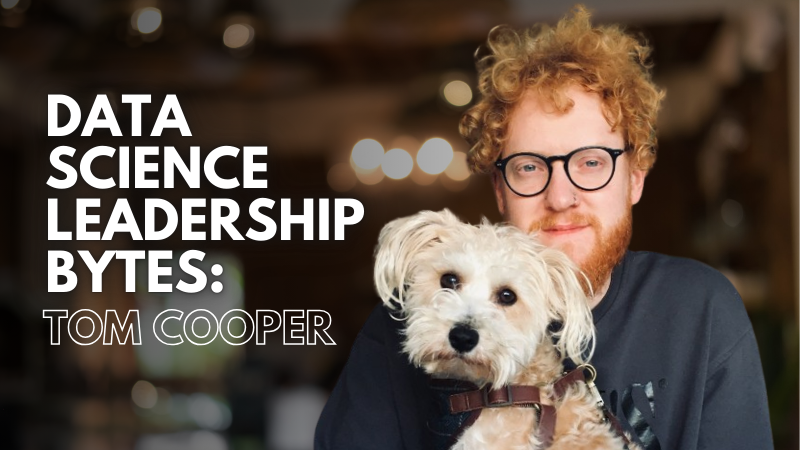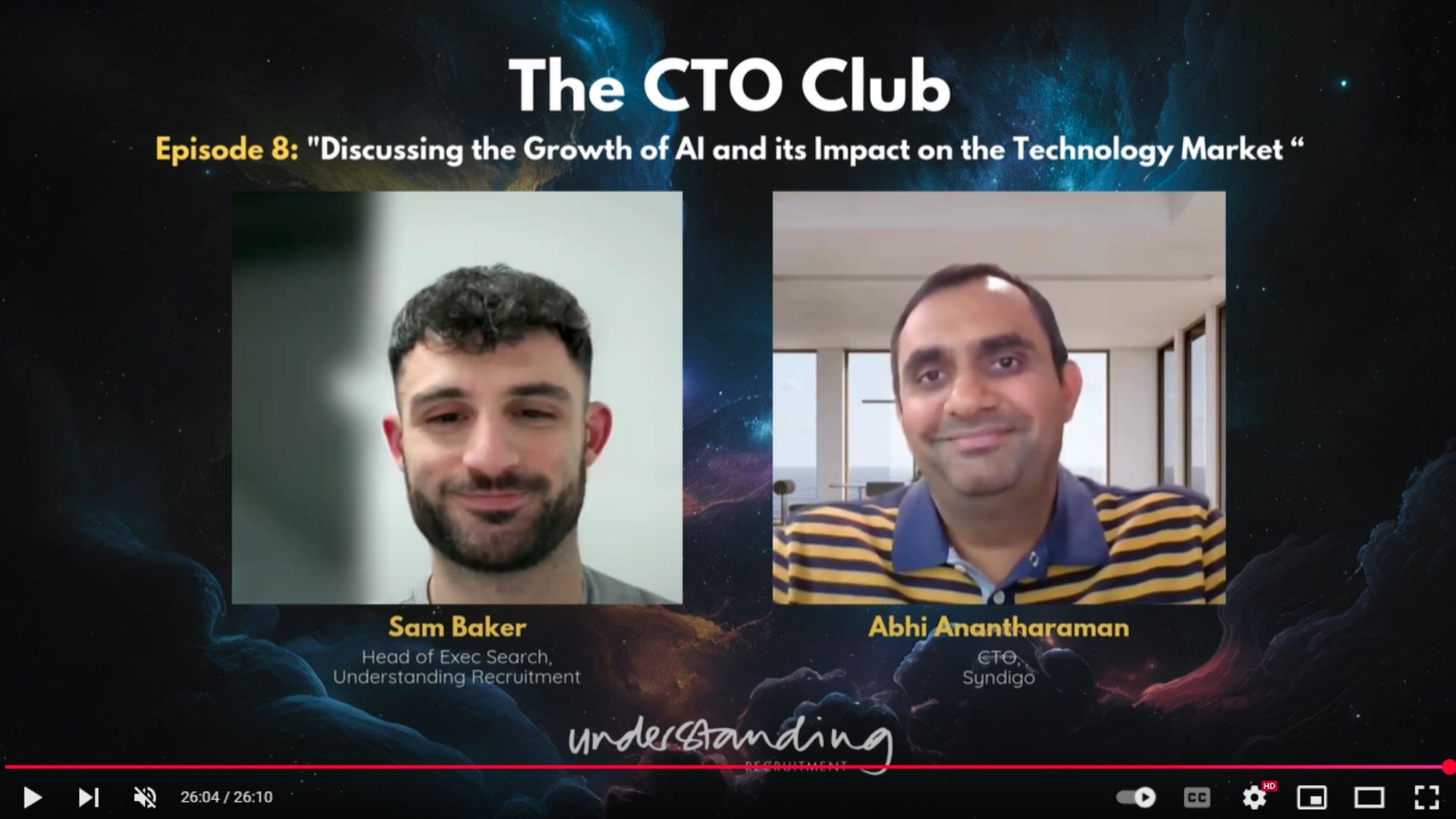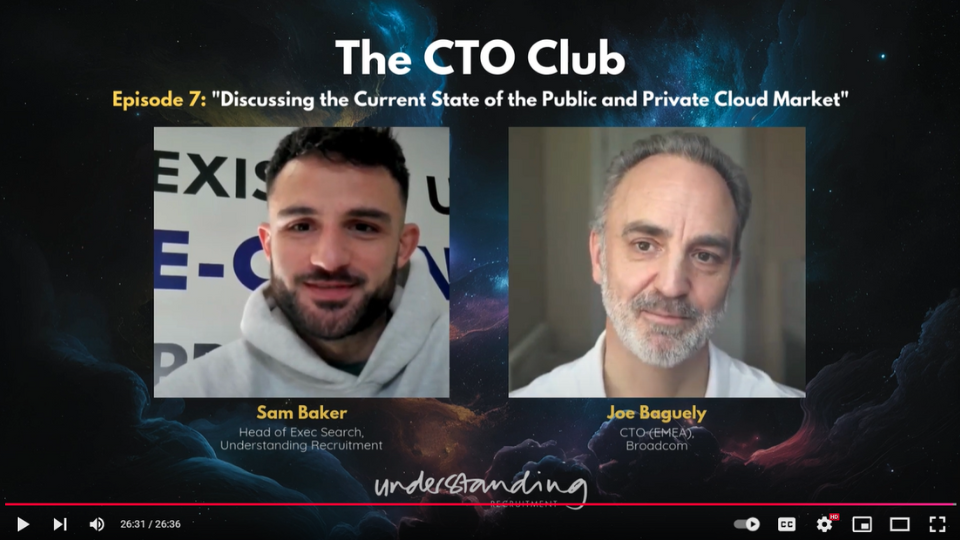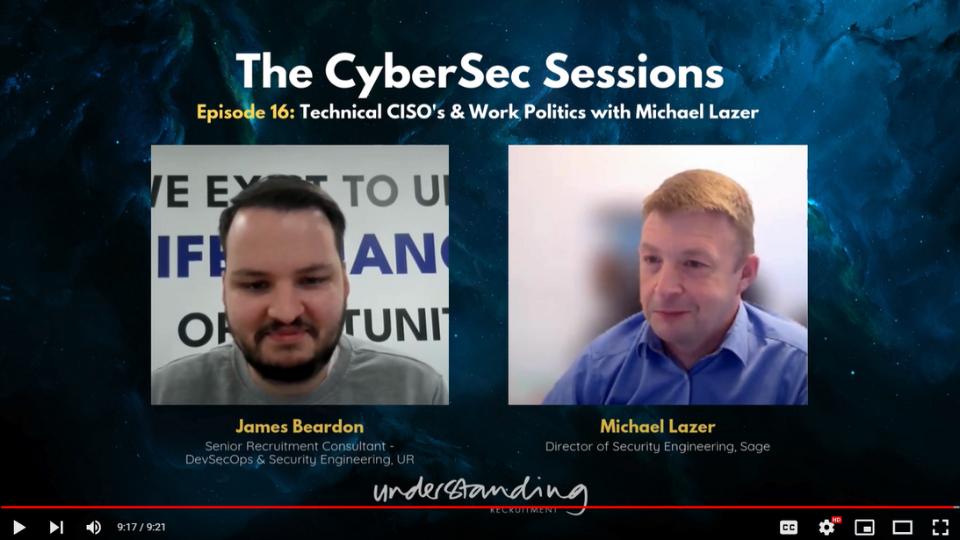Data Science Leadership Bytes: In Conversation With Tom Cooper
11th April, 2024 6 min
In our inaugural Data Science Leadership Bytes blog series, I had the pleasure of sitting down with Tom Cooper, Head of Data Science & AI at Superscript.
Tom first joined Superscript back in 2021 as a Senior Data Scientist. He pitched the idea himself, showing why they needed someone like him on board. Fast forward three-plus years, and he's not only grown the team but also snagged four promotions along the way and now heads up the highly successful Data Science & AI team.
In this insightful blog, Tom dives into his career journey and shares expert insights on advancing in the world of Data Science. Read on to find out what inspired him to get into Data Science, his advice for someone who's been laid off, and what excites him most about advancements in AI.
What inspired you to get into Data Science?
It’s weird for me because back when I started, a Data Scientist wasn’t actually a popular role. I did Mathematics at university and was heavily invested in statistics in my final year. I decided to do my dissertation around how likely people are to develop cardiovascular disorders and looked to support the hypothesis that mental health is linked with cardiovascular diseases. I used logistic regression (a bit dated now!) through questionnaire data to find out whether factors such as anxiety and depression lead to cardiovascular diseases. This was the first time statistics resonated with me and after that, I was hooked. At the start, I wasn’t fussed about what industry to go into, I just knew I wanted to do more of this i.e. creating models to predict things.
What’s been your biggest lesson?
The big thing I found was learning to make Data Science tactile because I think with all of the hype around Big Data, then Machine Learning and now AI, I feel like whilst it can foster a lot of excitement and opportunity, it can also bring in a lot of fear and scepticism from business users/non-technical people. I’ve always felt that you can so easily do a lot of work that’s completely isolated to your laptop with difficulty to see what you can actually do with it. The best way you can get people to buy into the application you’ve built is to make it so someone can hold it “virtually”. So, if you’ve made a predictor and can surface that through some sort of architecture where you can build a lightweight front end onto your predictor so that people can interact with it. This allows them to see the accuracy and the statistics of the model and helps to understand and see the most important features of the model. If you can give that to someone, it seems real and not as scary anymore!
Learning Machine Learning Engineering and how to create applications with Fast API in Python hosting applications or learning AWS, learning these sorts of things so that you can make your Data Science tactile is what has really opened doors for me.
What was your process for learning these things?
I learnt on the job and did my own research - I’ve never really been one for courses! For me, I want to see the template of the code to understand how it works then learn about the Machine Learning object or AI itself to learn how it works on a fundamental level then immediately try it on a use case.
With ChatGPT now you get to short circuit a lot of this too!
What excites you most about the advancements of AI?
Large Language Models have really captured my imagination. I think the flexibility of it and having the non-judgemental aid that is super intelligent as a Data Scientist is just gold! I have a team that I can bounce my ideas off but now I always have this virtual assistant with me to help me with programming issues, ideas etc. My productivity has doubled as a result. To people who say “It’s making Data Scientists/developers extinct”, I’d say, it’s not, it’s just being able to talk to someone without the fear of judgment.
What are the biggest challenges facing Data Scientists at the moment?
There’s the constant question of what is around the corner. I certainly didn’t think something as powerful as ChatGPT was so close and you can only imagine that things are continuing to accelerate in development. Who knows, we may start having a new version of LLMs that can act on things rather than producing text.
Also, with all the layoffs in the big companies, it’s released a load of talent and it’s become saturated and can only imagine that it’s particularly challenging at the moment.
What advice would you give to someone who’s been laid off?
Don’t feel that you’re never going to get there. When you’ve been on the other side and are hiring and you get 100 CVs come through, you can’t get through them all and often you will find that there are good candidates within the first 20/30 and then largely speaking you don’t get to read the rest. If you’re unlucky enough not to get in that first filter, your profile might not even be seen by a hiring manager so keep a positive mindset. Maybe assume that they didn’t get to your CV. Use non-conventional routes to get people's attention, and reach out directly. Send open applications to companies you want to work for – that’s what I did!
What advice would you give to your younger self?
Trust the knowledge you have. Especially, when you’re starting out, you’re in a weird position where you’re transitioning from academia to business context where it almost feels like the knowledge other people have is so far off and you wonder if you’d catch up. You’re in a particular mindset where everything is so theoretical still so I used to be very sensitive about the models I was creating or the way that we were doing a project such as if we’d been a bit loose a couple of preprocessing steps up that I normally would have done in academia.
I think I would have told myself to trust those instincts. When you’ve been working in a company for a long time, it’s very easy to fall into old habits. A lot of the success I’ve had is through respectfully challenging how things are done and not just bowing down to things that have been done for so long in a certain way. Put yourself out there with the risk that you may lose the fight/be wrong. That helps you learn and progress faster and gain respect when you are right. You can’t lose, even if it feels scary.
What do you think is the number one skill essential for a successful data science leader?
Commercial awareness. Having this and the understanding of how to prove that your Data Science model or predictor or whatever you’ve built has driven value has been gold for me to achieve what I have with Data Science. You need to understand what levers the business can pull to activate your ML/AI. With this, you'll find more of your work in production.
According to LinkedIn, just 30% of Data Scientists are female. What advice would you give to businesses that are struggling to attract and retain senior female talent?
For me, it's all about language. We are still in a long dark shadow of a male-dominated world and as such the foundations of the way we work, the way we talk and the language we use are from a male-dominated world. Make sure job specs and company comms have gender-neutral words and maybe even lean toward more feminine word choices.
Bonus Question: What is your number one Interview tip?
Passion! If you're passionate about a position, show it!
If you're looking for exceptional talent in data science or seeking exciting career opportunities, our dedicated Data Science recruitment team is here to help. We connect businesses with skilled professionals and offer a platform for individuals to explore promising roles in data science. Whether you're hiring, browsing job listings, or interested in being featured in our blog series, we're here to support your journey in the world of data science. Contact us today to learn more!



